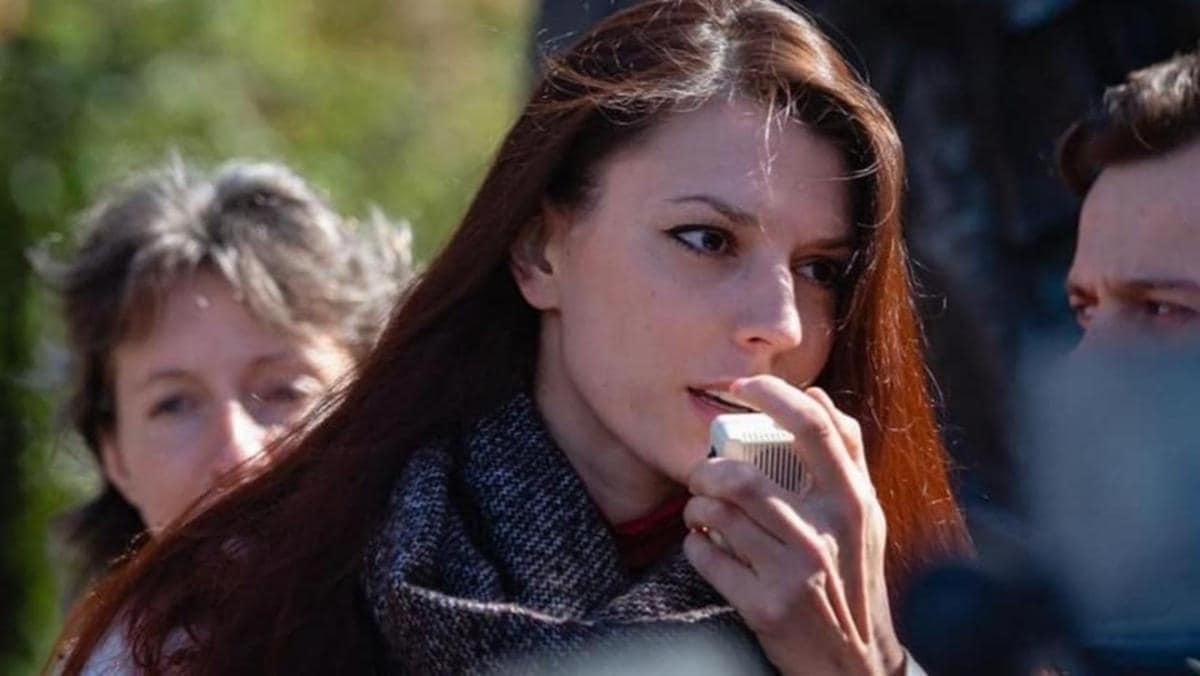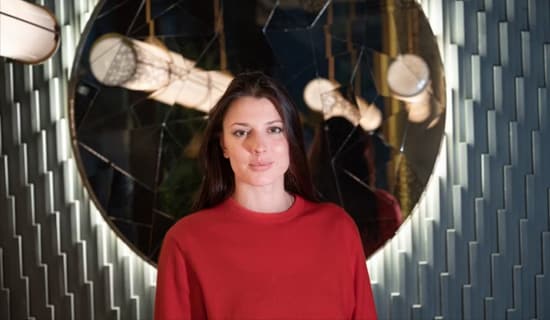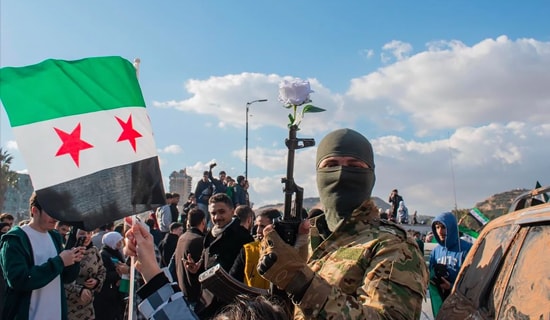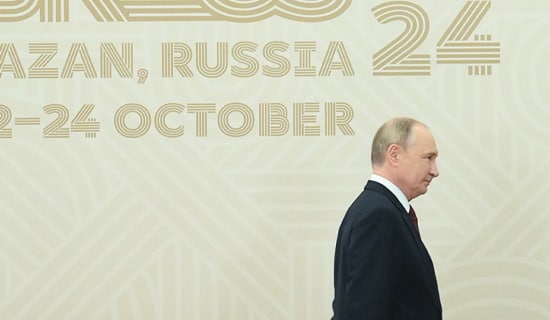A long time ago, there were almost no female political prisoners in Russia.
At that time, there were not many male political prisoners either, but gradually they started to appear. And when the number of men increased, the authorities began to target women as well.
Everything followed the classic rules of repression. First, they came for some people, then for the others. It was gradual, creeping – and then it turned out that everyone was imprisoned, and there were no more rules or safeguards.
In the early Putin years, particularly troublesome women, such as journalists, were dealt with without the help of judges and investigators. For example, the world-famous Anna Politkovskaya was shot – and, like in a classic Soviet film, it was done by "people not from our district." Everything was blamed on the Chechens. Who ordered it is another question, which the Russian Federation wisely did not pursue to avoid implicating itself.
Then the regime began to indulge in classic repressions and started imprisoning women who could be labeled as marginal activists in the public opinion. For example, Darya Polyudova went through all the circles of the Dantean criminal correctional system of the Russian Federation. She was accused of separatism, extremism, and anything else, all just for her words. The local justice in Kuban broke her life, like an arm, in several places.
But society swallowed it because who knew where Kuban was or who these activists with a march for its federalization were? Society was unclear.

Elvira Vikhareva
Each Case Is Remembered For Its Particular Brutality...
After such trials and others like it, the repressions began to fully affect many women in politics.
I believe the key stage was the persecution of Mikhail Khodorkovsky's "Open Russia." Khodorkovsky spent ten years in prison for the Yukos oil company case and was pardoned in December 2013. He soon left Russia and became an active critic of Vladimir Putin. Women from Khodorkovsky's organization – Yana Antonova and Anastasia Shevchenko – were tormented for being part of an "undesirable organization," simply for cooperating with a critic of Putin.
A hidden camera was installed in Shevchenko's bedroom, and the Investigative Committee recorded home videos. She was not even allowed to say goodbye to her child, who died in the hospital.
These women, however, were not imprisoned in the end, though they endured several years of torment before their verdicts. Once it was clear that society could swallow the repressions, the state understood it could do anything.
Now, everyone is being imprisoned, for long periods. Old, young, from the capitals, from the provinces – it makes no difference.
I will give just a few examples:
Maria Ponomarenko was sentenced to six years in prison for her journalism work. Her case is labeled as "military fakes," a criminal charge introduced after the start of the military operation in Ukraine. Ponomarenko was convicted for her publications about the drama theater in Mariupol. Prior to this, she spent several months in pre-trial detention, and last fall, she slit her wrists due to the torturous conditions of her confinement.
Artist Lyudmila Razumova received a seven-year sentence. Lyudmila and her husband were convicted for the same series of social media posts criticizing Russian military actions. Additionally, they were charged with "vandalism" for pacifist graffiti. The pacifist graffiti included "Peace to Ukraine" and "Ukraine, forgive us." Just think about it – seven years.
Harsh sentences for women are undoubtedly a demonstrative political measure. The state is raising the stakes. While not all women in the country are imprisoned, it is clear that those who dare to go against Putin's regime are targeted.
In the context of obsessive traditionalism and the cult of family, which is reinforced by demands to set aside careers and have children by age 20, women who go against this trend are not spared.
The argument "I have the right to control my own body" is harshly suppressed.
The very desire to engage in political activities is opposed to the patriarchal mindset. Activism is equated with extremism, with corresponding restrictions on freedom.
Many names of female political prisoners are now known worldwide: Skochilenko, Filonova, Kurmasheva, Chanysheva... The list can go on for quite a while; each case is remembered for its particular brutality.
Skochilenko was denied food during the trial, and when given food, it was inedible.
Filonova's adopted son was taken away and sent to an orphanage.
Kurmasheva was taken hostage because of her husband, who heads the publication "Current Time."
Chanysheva was punished for collaborating with the murdered critic of Putin, Alexei Navalny, disregarding her pregnancy, and then her sentence was further increased.
What did all these women and many others do: politicians, journalists, activists? They did many beneficial things for society and nothing dangerous for the state.
How Many Other Women Remain Imprisoned?
The prisoner exchange on August 1, 2024, the largest since World War II, which managed to save four women from the hundreds of political prisoners, did not change the situation.
Of course, we in Russia are glad that Sasha Skochilenko, Alsu Kurmasheva, Lilia Chanysheva, and Ksenia Fadeeva will no longer languish in Putin's prisons – but how many other women remain there?
How many can I not even write about here without risking being charged with "justifying terrorism"?
Media coverage and affiliation with a public organization are said to offer some protection – albeit with a slim chance. But what if no one is interested in you besides your loved ones, like many in Russian prisons? What if you were unlucky enough to become just another grain of sand in the prison archipelago?
The story of Evgenia Kholodova, a Moscow teacher, will undoubtedly be remembered in the history of Russian repressions. She demanded that a policeman at a rally release her friend and accidentally hit the officer with her bag. He bit his lip, which was considered a wound and led to a criminal case with a suspended sentence.
Or the case of Zarema Musayeva, the mother of the Chechen Yangulbaev brothers, who oppose the head of the Chechen Republic, Ramzan Kadyrov. She was kidnapped at night from Nizhny Novgorod, dragged barefoot through the snow and frost, and taken to Chechnya. There, she fainted in court and was accused of attacking a police officer. Allegedly, a razor cut on the officer's face was declared evidence of the attack. The European Court of Human Rights has awarded Musayeva more than 50,000 euros – but she will not receive the money. The main thing is for her to get out of the colony alive.
Such stories can be told for a very long time. But from these examples alone, it is clear: There are no more rules. Sentences of 10 years or more for women are no longer surprising.
The state, the regime in Russia, is ruthless to the enemies of the Reich. And for a long time now, it has not mattered whether the enemy is a man or a woman. From Putin's perspective, his enemies have no gender or age. Children, women, the elderly – it makes no difference.
Yet, women continue to bravely pursue their path in politics. Are women important in politics? What is it all about?
Look At The Women Who Are Being Tormented In Prisons And Remember Their Actions...
As I see it:
Firstly, women in politics represent equality – not just between men and women, not just between homosexuals and heterosexuals, but above all, respect for people for what they do, not for who they were born as.
It has always been harder for a woman to break through in society, and this is no secret. Throughout the entire 20th century, Russia did not have a female head of state. There is a connection here.
Women's politics means a lesser chance of war because women give birth to and raise children not to send them to the front lines.
Women generally prefer negotiation over conflict. We solve problems not with force but with words and diplomacy. Long-term planning, butter instead of guns, human rights – these are all traits of women's politics.
But as long as this does not exist in Russia, the country awaits civil war and has been watching the horrors on the fronts in Ukraine for two years. If there were women's politics in Russia, there would not be such a skewed budget favoring law enforcement. But someone looking at the composition of the State Duma of the Russian Federation might reasonably say:
"What are you lacking? Look how many women are in power!"
That is true, but let's take a closer look:
There are two types of women politicians.
The first type includes those who are in prison on politically motivated charges, talented and unique. The ones I mentioned at the beginning of the article are serving their sentences under inhumane conditions. If Russia had real, competitive politics, they would be deputies and party leaders. But in Russia, there is only terror, directed both internally and externally.
The second type of women politicians are those who are in power right now. You may have even heard of some of them. One of them is Valentina Tereshkova, the first woman in space. Years go by, the country's leaders change, the Constitution changes, and even the country itself changes.
And yet Valentina Tereshkova continues to loyally serve any regime. The authorities treat her like a trophy – polishing her up for important dates and placing her in a prominent position when necessary. Tereshkova could have remained a symbol, a moral guide for generations, but instead, she chose to support the most vile projects of the Russian government, ultimately tarnishing her reputation. She played a key role in resetting Vladimir Putin's presidential term limits, thus extending his hold on power.
Another well-known female politician in Russia is Valentina Matviyenko. She is the chairwoman of the Federation Council, a former governor of St. Petersburg, an experienced Komsomol member, and a loyal servant of Vladimir Putin.
And strangely enough, the list is long; I have only mentioned the most recognizable names.
This contrast between the women who are unjustly serving prison sentences on fabricated political charges and the women who are loyal to the man who has taken Russia hostage is stark. It is a contrast between the past and a future that will never come under Putin.
Do you know what distinguishes women in Russian power? Nothing. They are all the same.
It seems they have different names and do not look alike. But if you take the words and actions of one and attribute them to another, nothing changes. Could Matviyenko have signed the reset of Vladimir Putin's presidential terms? She could have. Could we imagine Tereshkova becoming the head of the Federation Council instead of Matviyenko? Easily! There is no difference. There are plenty of women in power who fawn over Putin. But these are not women politicians because they are not politicians – they are officials appointed to serve Putin. It is a rather creepy harem.
Now look at the women who are being tormented in prisons and remember their actions. Many of them have proven through their deeds that they stand for social policy, support for the oppressed, and all those values we in Russia call European and democratic. These women are not alike. They are unique and honest, unwilling to join the ideas of dictators for an extra penny in their pockets. They are different people with different visions for the future of the country, yet without possessing an official mandate, they are true politicians and patriots because they speak their minds and express the problems of Russian society as honestly as possible, without censorship.
Putin Is Afraid Of Women
Parliament should consist of diverse individuals who debate issues like whose Crimea it is, rather than sitting in tanks on the border. And many women in Russia, overcoming their fear and risking arrest, are ready to debate. That is the difference. Valentina Matviyenko, Tereshkova, and many other servants of Putin are not ready to argue with anyone; they follow orders from their boss in the Kremlin.
There are many women in Russia who are ready to change the country. We have all the ideas that are actively discussed in Europe. But we are not allowed to implement them, not even given the minimum chance to discuss them.
Putin is afraid of women, and in the Kremlin, they are all afraid of us because they have forgotten how to talk. They only know how to be rude and resolve issues by force or coercion. You cannot tell us women: "like it or not, endure it, my beauty," without risking getting hit in the face. They know nothing but aggressive politics, and it is getting worse and worse. Look at Ukraine.
It was once believed that women were not imprisoned, but after the start of the military operation, that changed drastically.
The future of Russian politics lies with women, no matter what anyone says, and the Russian authorities understand this. They do not believe in turnover, so instead of women politicians, we have mannequins.
A woman in politics and a woman politician are different things.
Sooner or later, we will prevail, like grass breaking through asphalt, and Russia, repenting to the world for what Putin has done, will become a European country with real equality, not just in words. A country that does not wage war because it values life. A country where people debate, not imprison each other.
Men! It's Time To Make Room – The World Needs Peace!
*Elvira Vikhareva is renowned Russian opposition politician. In 2023, she was poisoned by heavy metal salts.





